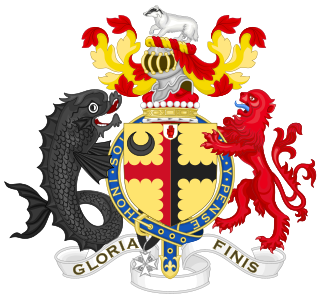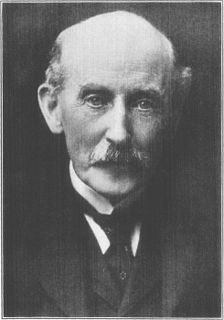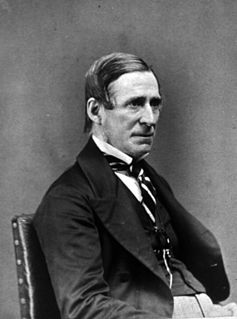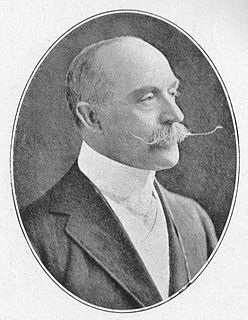Notes
This article needs additional citations for verification .(September 2014) |
- ↑ Different members of the family spelled their surname as "Du Cros" or "du Cros".
- ↑ "No. 29730". The London Gazette . 1 September 1916. p. 8592.
The du Cros (or Du Cros) Baronetcy, [1] of Canons in the County of Middlesex, is a title in the Baronetage of the United Kingdom. [2] It was created on 5 July 1916 for the industrialist and Conservative politician Arthur Du Cros. He was the founder, Chairman and President of the Dunlop Rubber Company and also represented Hastings and Clapham in the House of Commons.
Harvey du Cros, father of the first Baronet, was also an industrialist and like his son sat as Member of Parliament for Hastings.
The heir apparent is the present holder's only son, Alexander Julian Mallet du Cros (born 1990).
This article needs additional citations for verification .(September 2014) |

Earl of Granard is a title in the Peerage of Ireland. It was created in 1684 for Arthur Forbes, 1st Viscount Granard. He was a lieutenant-general in the army and served as Marshal of the Army in Ireland after the Restoration and was later Lord Justice of Ireland. He had already succeeded his father as second Baronet of Castle Forbes and been created Baron Clanehugh and Viscount Granard in 1675, also in the Peerage of Ireland. The Baronetcy, of Castle Forbes in county Longford, was created in the Baronetage of Nova Scotia on 29 September 1628 for his father, Arthur Forbes.

Earl of Romney is a title that has been created twice.

Viscount Brookeborough, of Colebrooke in the County of Fermanagh, is a title in the Peerage of the United Kingdom. It was created in 1952 for the Ulster Unionist politician and Prime Minister of Northern Ireland, Captain The Rt. Hon. Sir Basil Brooke, 5th Bt., P.C. (N.I.), M.P.
Baron Hothfield, of Hothfield in the County of Kent, is a title in the Peerage of the United Kingdom. It was created in 1881 for Sir Henry Tufton, 2nd Baronet, who was appointed Lord Lieutenant of Westmorland the same year and who also served briefly as a government whip in the Liberal administration of 1886. His eldest son, the second Baron, notably served as Mayor of Appleby, Westmorland. On the death of his son, the third Baron, in 1961, this line of the family failed. The late Baron was succeeded by his first cousin, the fourth Baron. He was the only son of the Hon. Sackville Philip Tufton, second son of the first Baron. On his death in 1986 this line of the family also failed and the titles passed to his first cousin, the fifth Baron. He was the eldest son of the Hon. Charles Henry Tufton, third son of the first Baron. As of 2017 the titles are held by his son, the sixth Baron, who succeeded in 1991.

Baron Glenconner, of The Glen in the County of Peebles, is a title in the Peerage of the United Kingdom. It was created in 1911 for Sir Edward Tennant, 2nd Baronet, who had earlier represented Salisbury in the House of Commons as a Liberal and also served as Lord Lieutenant of Peeblesshire. Lord Glenconner was succeeded by his second son, the second baron. The latter was succeeded in 1983 by his eldest son, the third baron, who bought the island of Mustique. As of 2014, the titles are held by the third baron's grandson, the fourth baron, who became the next-to-youngest peer in the realm when he succeeded in August 2010.

Baron Carnock, of Carnock in the County of Stirling, is a title in the Peerage of the United Kingdom. It was created in 1916 for the former Permanent Under-Secretary in the Foreign Office, Sir Arthur Nicolson, 11th Baronet.

There have been seven baronetcies created for members of the Lowther family, one in the Baronetage of Nova Scotia, two in the Baronetage of England, two in the Baronetage of Great Britain and two in the Baronetage of the United Kingdom. Two of the creations are extant as of 2008.
There have been five baronetcies created for persons with the surname Clarke, two in the Baronetage of England and three in the Baronetage of the United Kingdom. Two of the creations are extant as of 2010.

There have been twelve baronetcies created for people with the surname Scott, one in the Baronetage of England, two in the Baronetage of Nova Scotia, and nine in the Baronetage of the United Kingdom.

There have been two baronetcies created for members of the Trevelyan family, one in the Baronetage of England and one in the Baronetage of the United Kingdom. As of 2014, both creations are extant.

There have been four baronetcies created for persons with the surname Rose, all in the Baronetage of the United Kingdom. Three of the creations are extant as of 2010.

There have been seven baronetcies created for persons with the surname Parker, three in the Baronetage of England, two in the Baronetage of Great Britain and two in the Baronetage of the United Kingdom. Two of the creations are extant as of 2008. Though none of the different families of baronets were related, several supplied a number of flag officers to the Royal Navy.
There have been six baronetcies created for persons with the surname of Lawson, two in the Baronetage of England and four in the Baronetage of the United Kingdom. Two creations are extant as of 2010.

The Cory-Wright Baronetcy, of Caen Wood Towers, High Gate, in St. Pancras in the County of London and Hornsey in the County of Middlesex, is a title in the Baronetage of the United Kingdom. It was created on 28 August 1903 for Cory Cory-Wright, Chairman of William Cory & Son, coal and oil shippers. Born Cory Wright, he assumed by Royal licence the additional surname of Cory in 1903. He was High Sheriff of Middlesex in 1902. The second Baronet was High Sheriff of Hertfordshire in 1921. The third Baronet was the husband of Felicity Tree, daughter of Sir Herbert Beerbohm Tree.

There have been three baronetcies created for persons with the surname Paget, all in the Baronetage of the United Kingdom, and a fourth created for the Bayly, which later became the Paget Baronetcy. As of 2016, two of the creations are extant.
There have been four baronetcies created for persons with the surname Jardine, one in the Baronetage of Nova Scotia and three in the Baronetage of the United Kingdom.
There have been two baronetcies created for persons with the surname Curtis, one in the Baronetage of Great Britain and one in the Baronetage of the United Kingdom. One creation is extant as of 2007.
There have been four baronetcies created for persons with the surname Musgrave, one in the Baronetage of England, one in the Baronetage of Nova Scotia, one in the Baronetage of Ireland and one in the Baronetage of the United Kingdom. As of 2014 two of the creations are extant.

Sir Arthur Philip Du Cros, 1st Baronet was a British industrialist and politician.

William Harvey du Cros was a Dublin-born financier who became the founder of the pneumatic tyre industry by supporting development of the innovations of John Boyd Dunlop and mass-producing Dunlop's tyres.